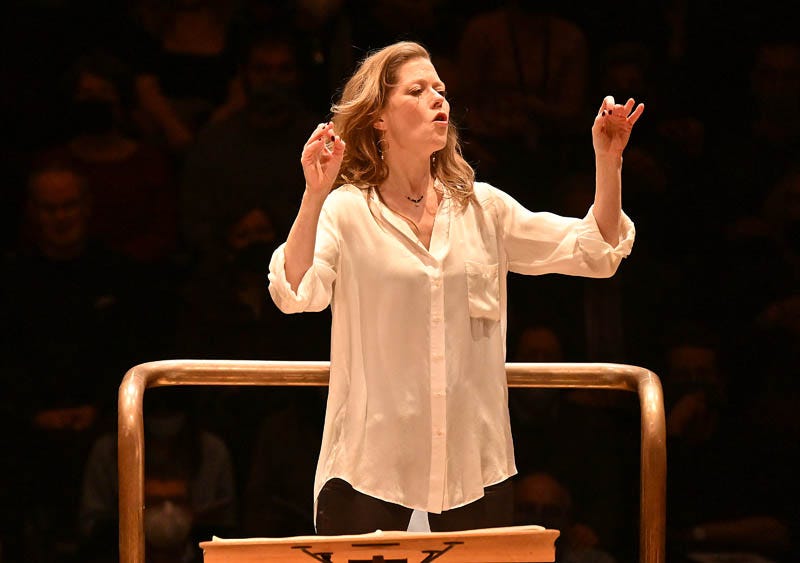The Tragedy of Claude Vivier
He might have been the successor to Richard Strauss, and for some of us he is.
Whenever I spot a piece by the Canadian composer Claude Vivier on the programme of a concert I’m attending, as I read the progamme notes and look him up on Wikipedia, I am reminded of his tragic, short life, and wonder about the connection (if any) between his dreadful childhood and his undoubted genius.
Born in 1948 in Montreal, Vivier spent the first years of his life in care, before being adopted. He was first raped by an uncle when he was eight, and the abuse continued for years. He had a difficult relationship with his adoptive parents before being sent to a school run by the Frères Maristae, a catholic organisation that prepared its students for the priesthood. Against the odds, Vivier excelled at school: a classical education opening his eyes to the world beyond, bringing him out of himself and revealing an acute intellect. For the rest of his life he wondered about the identity of his birth parents, assuming it was genetic factors that instilled in him the love of poetry, classical history, latin and greek, and eventually music; passions that were certainly not fostered at home, where his working class parents constantly struggled financially. He never found out who is real parents were.
He was distraught when, at the age of eighteen, he was expelled from school, ostensibly because of his immaturity, but in fact because he chose not to hide his homosexuality. Despite their struggles, his parents had managed to buy him a piano, and, after three years working at various jobs, he was able to enroll at the Conservatoire de musique du Québec à Montréal where his musical ability, alongside his enthuiasm and hard work got him noticed.
Three years studying in Europe with Karl Heinz Stockhausen among others, set him firmly on his way to a career as a composer. In the decade that followed, he compiled a body of work that prompted the Hungarian composer, György Ligeti, to call him:
The most important and original composer of his generation. His music is one of the most significant, perhaps even one of the most important developments since the works of Stravinsky and Messiaen.
I have to say I prefer Vivier to either Stravinsky or Messiaen, especially after seeing the London Symphony Orchestra, under the incomparable Barbara Hannigan, perform his 1981 piece Wo bist du Licht! (Where are you light?) last week.
The composer himself described it thus:
‘a meditation on human suffering, this piece is intended as one long continuous melody.’
adding:
‘In a divine sound landscape, there still rings out the voice of the wounded man, who incessantly repeats to God his despair, without which he would not even be sure that God exists.’
While it is certainly shot through with melancholy, I found it strangely uplifting, in no small part thanks to the juxtaposition of strings, percussion and song with the recorded words of Martin Luther King, reactions to the assassination of Robert Kennedy, and the reports (in French, making them all the more more poignant) of journalists during the Vietnam war. It was Vivier’s wish that these recordings be played with the music by way of inserting genuine memories into the divine soundscape he so brilliantly conjures.
The sung voice was provided by the mezzo-soprano Fleur Barron, and what a voice it is. It’s an incredibly difficult piece but she delivered it beautifully. From the fourth row, it was evident how much both Barron and Hannigan were commited to the performance. They gave it everything, and a packed Barbican auditorium repsonded in kind.
If the rest of the programme didn’t quite reach the dizzying heights of Vivier’s masterpiece, it was still faboulous: Lygeti’s own Ramifications (1968) gently prepared us for what was to come with some sublime, almost impercetibly quiet, playing from the LSO’s string section. After the Vivier, the first half concluded with Hadyn’s fizzing 26th Symphony. Barbara Hannigan always makes you hear more in Haydn’s music that you would otherwise.
After the interval, the conductor sang unaccompanied Luigi Nono’s Djamila Boupacha, the perfect showcase for her silken voice and remarkable control. At its end, without waiting for applause, she turned back to face the orchestra, raised her arms and went straight into Richard Strauss’s Death and Transfiguration, again eliciting fine playing from a by now now fully-peopled LSO. And how appropriate that Strauss should close a wonderful evening. More than any composer I think, he is the link between the great romantics: Lizst, Wagner et al and the pre-eminent composers of modernity, like Ligeti and most especially Claude Vivier.
Vivier’s life ended violently in his Paris apartment in 1983 at the hands of a serial criminal he’d picked up in a gay bar. He was thirty-four and he left us just forty-nine completed works. We can only wonder.




